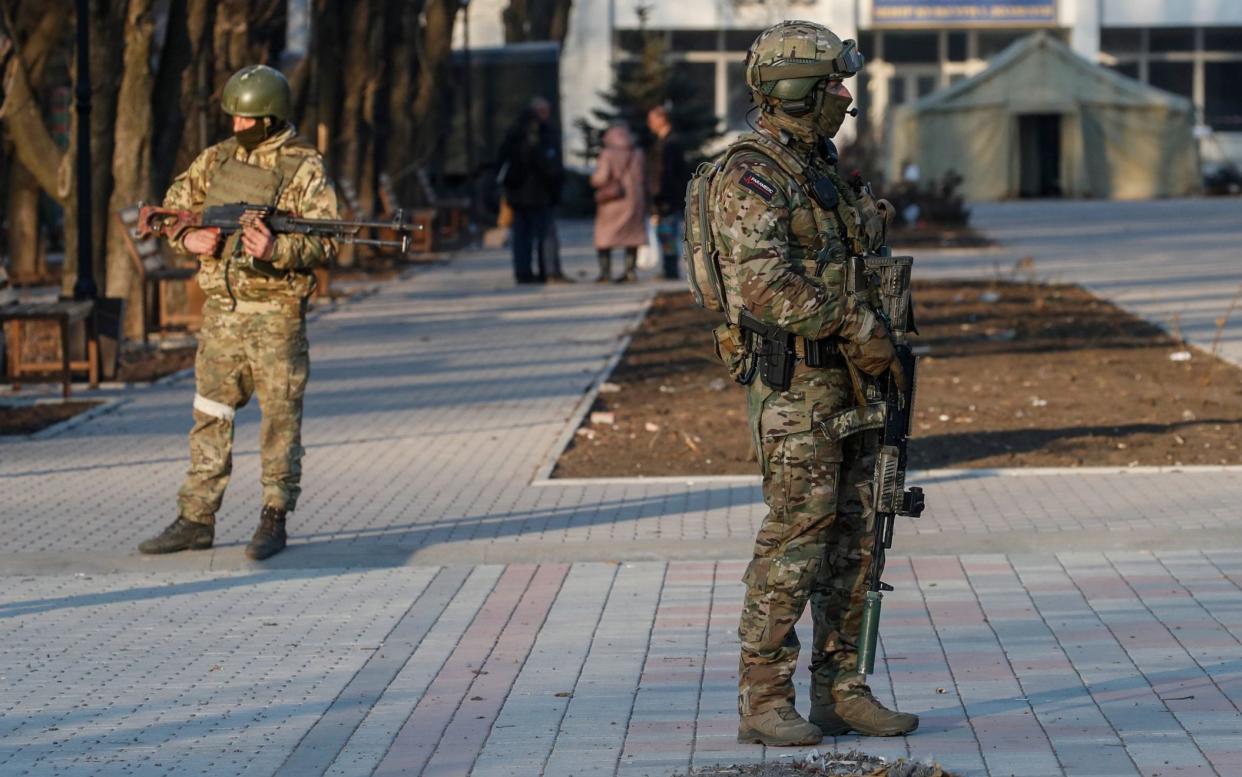Russian soldiers banned from social media as ‘uncomfortable truths’ drain their morale

Russian soldiers have been restricted from using the internet on their phones over fears that Ukrainian propaganda is causing morale to collapse, Ukrainian intelligence has claimed.
The deputy commander of Russia’s western military district ordered officers to restrict troops' use of social media, after field commanders complained about the impact of Kyiv's "false information", said the GUR, Ukraine’s main military intelligence agency.
A Russian document purportedly obtained and partially published by the GUR on its Facebook page said: “Commanders of all ranks in a number of units have faced opposition from personnel expressing dissatisfaction with the conduct of the special military operation in Ukraine. The main sources of such information are from the internet.”
The document avoids acknowledging that poor morale might be linked to troops learning uncomfortable truths about the scale of Russian losses or the emptiness of Kremlin claims about fighting Nazis.
Instead, it blames an increase in activity by Ukrainian military propaganda units in response to the “success of the Russian armed forces”.
The Ukrainians, it said, are trying to "influence on historical memory (distortion of historical facts of Russian history)” and “manipulate opinions”, as well as “distribute false information about events and the situation” in the warzone.
Ukraine's government has placed heavy emphasis on internet propaganda designed to demoralise the enemy and rally the public since the war began.
The earliest and most well known meme was the radio intercept of hopelessly outgunned border guards on Snake Island on the first day of the war, telling a Russian warship to "go f— yourselves" rather than surrender.
The Ministry of Defence of Ukraine posted a mock "Oscars" for the most memorable social media moments last month. It has refused to discuss its own losses, but regularly updates its estimates of Russian casualties.
The purported Russian document also complained that soldiers have revealed sensitive information, including their personal details and the location of units, on messaging apps including Viber, WhatsApp and Telegram.
The document said: “In light of this, the ministry of defence in conjunction with colleagues at the centre for information countermeasures has decided to create an inter-agency commission for working with personnel on the internet; increase control of personnel and monitoring of changes in their moral-psychological conditions.”
It followed up with an order to "limit the access of personnel to the internet from personal mobile devices with advanced multimedia capabilities" and to keep a closer eye on soldiers with access to sensitive information, in a bid to “reduce attempts at theft of documents”.
Unit commanders are also charged with making sure their men follow the new instructions and are ordered to make a daily sweep of social media and internet forums for leaked information or personal details of their troops.
Their political officers are meanwhile ordered to put soldiers through information security training courses.
The Telegraph could not immediately independently verify the document, which said it was issued in St Petersburg, where the western military district is based. The GUR blurred the date and several other identifying markers before publishing it.
Russia has gone to extraordinary lengths to prevent information about the war reaching its public, which include restricting access to Facebook, Instagram and Twitter.
Ukraine’s Western allies have attributed the stalling of Russia’s attempted blitzkrieg in part to low morale borne of shortage of equipment and food, unexpectedly tough Ukrainian resistance and a high rate of losses.
If genuine, the document would not only cast light on the Russian army’s morale issues, but failure to get to grips with its own information security policies.
Careless use of social media by Russian soldiers played a significant role in exposing the Kremlin’s involvement in eastern Ukraine in 2014, including its responsibility for shooting down Malaysian airlines flight MH17.
Rules were meant to have been tightened when Russian troops went into Syria in 2015.
Since 2017, Russian troops have been trained not to share sensitive information online, including inadvertently by posting selfies.

 Yahoo News
Yahoo News 
